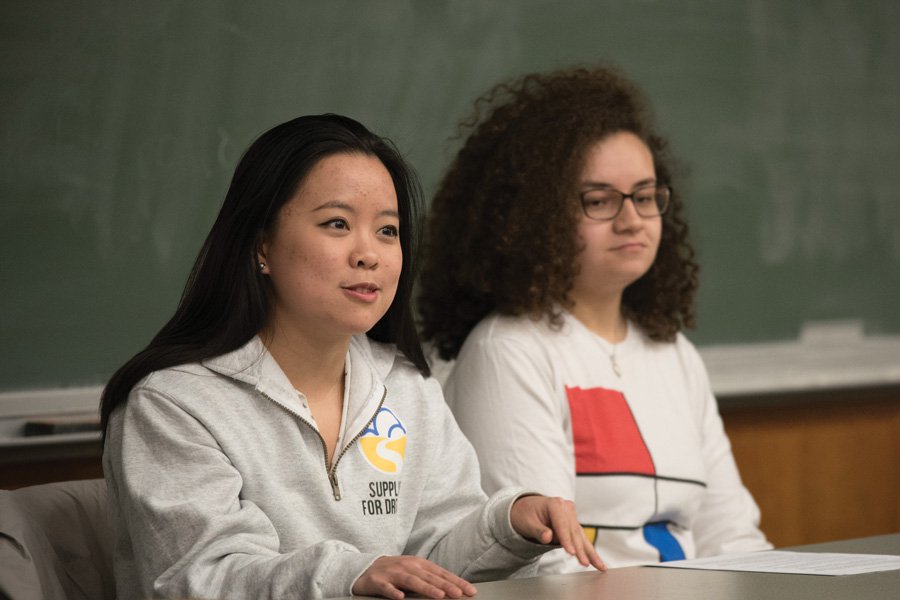Organizations and school districts have stepped up their efforts to ensure that all students, regardless of race, ethnicity, or income level, have the opportunity to a high-quality public education.

Nearly 50 million children attend public elementary and secondary schools in the United States, but our schools don’t serve them all equally well. As a result, organizations and school districts have stepped up their efforts to ensure that all students, regardless of race, ethnicity, or income level, have the opportunity to a high-quality public education.
While many reform efforts are aimed at K-12 public education, numerous organizations – including for-profit start-ups – are focused on disrupting the higher education space, especially through the strategic use of technology and data. Increasingly, school districts and other organizations are recognizing the value of managerial skills in overseeing non-academic functions in education, making education an attractive field for leaders passionate about making a difference in education from places other than the classroom.
-
Each year, approximately 1.3 million students fail to graduate from high school; more than half are students of color.1
-
22% of children who have lived in poverty don’t graduate from high school, compared to only 6% of those who have never been poor.2
-
Dropouts from the class of 2010 alone will cost the nation more than $337 billion in lost wages over the course of their lifetimes.3
The Lowdown: What can you expect if you decide to go into education?
Mindset is key
Having what psychologist Carol Dweck calls a "growth mindset" – a belief that basic qualities such as intelligence or talent aren’t innate but can be developed through dedication and hard work – is an important trait that many die-hard education reformers share. If you don’t agree that all kids have the potential for high levels of achievement regardless of their background (in other words, you think kids are either born smart and talented, or they’re not) then education may not be the field for you.
It’s all about the kids…and the Benjamins
Given the challenging state of our schools, there’s a lot of work to be done – and fast. If the achievement gap and other issues of educational disparity don’t get you fired up, you may find it challenging to keep pace with your colleagues or put in the long hours required for success. At the same time, education systems are large business enterprises – they have multimillion dollar budgets, varied business functions, and a lot of data – so the field provides numerous opportunities for emerging leaders passionate about these issues to hone their analytical skills.
Education is a hot-button issue
The education reform space is filled with strong opinions – about the merits of charter schools, the best way to measure student achievement, and whether pay-for-performance incentives for teachers are a good thing. Groups with vested interests can cause the pace of change to be slower (and more bureaucratic), and the rhetoric to become heated. Be prepared to enter a politically-charged field that is frequently in the public eye.
Meet the players: Who's addressing education issues, and how?
School districts
Districts (like The New York City Department of Education) are the largest providers of public education in the U.S., charged with ensuring that all children have high-quality educational options regardless of demographics.
Nonprofit organizations
Nonprofits address needs at various points along the education continuum. Increasingly, nonprofit organizations (like Kahn Academy) are using technology as a tool in the fight to bring a high-quality, differentiated education to students at scale.
-
Direct service organizations like Beyond12 run programs that provide direct educational interventions.
-
Policy and research organizations like WestEd work to ensure that data and research are available to inform education-related conversations at the policy level.
-
Support organizations provide districts and other clients with services to address key needs, such as human capital (e.g. Teach for America) and facilities (e.g. Civic Builders).
-
Charter Management Organizations (CMOs), such as KIPP and Uncommon Schools, operate public charter schools.
For-profit companies
Private sector companies also play a significant role within the education space.
-
Large, education-focused companies (e.g. Scholastic) provide products and services to educational providers in the form of content, testing, and tracking tools.
-
Other large companies view a well-educated population as critical to filling their need for talented employees, so make education a priority within their community involvement efforts. Many (such as Deloitte) often target underserved communities. Also see our Corporate Impact overview.
-
Entrepreneurial start-ups are addressing gaps within the field of education in innovative ways. Some of these, like SkillShare, are using technology to provide new learning platforms. Many, like Revolution Foods, are social enterprises that manage and track multiple bottom lines (see Social Entrepreneurship for more).
-
Technology and engineering companies (e.g. Intel) focus on improving science, technology, engineering, and math (also known as "STEM") education.
Funders
Providers of capital for education reform efforts include foundations that invest in nonprofit organizations (e.g. The Bill & Melinda Gates Foundation), hybrid funds that invest in both for-profits and nonprofits (e.g. New Schools Venture Fund), and venture capital firms that invest in for-profit start-ups (e.g. Imagine K12).

